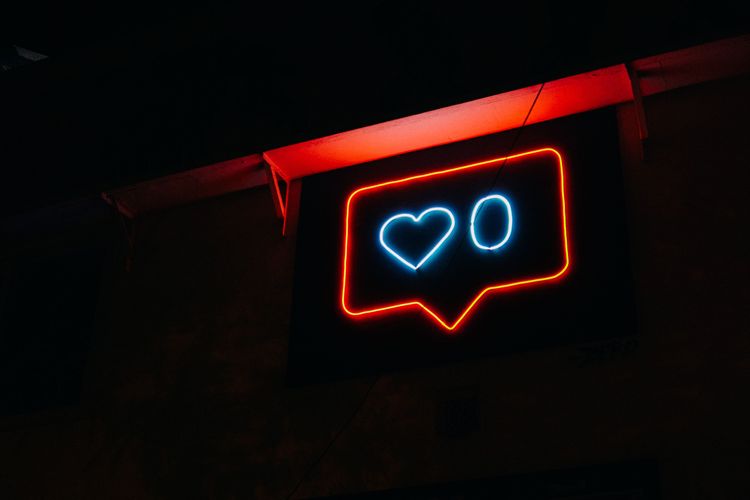
Mar 01, 2023, 5:00 am UTC
4 min
Created by
International Women's Day: 5 ways to be proactive about your brain health
March is a time to celebrate women's achievements and shine a light on the inequalities holding women back in many spheres of life.
This year's International Women's Day, led by the United Nations, focuses on innovation and technology for gender equality. It is about closing the digital gender divide and ensuring that innovation, technology, and digital education work for girls and women everywhere.
It's a theme that resonates deeply with the wmnHealth team.
Through the stories we tell, we're calling out inequities in women's lives that affect their mental and neurological health. We're also drawing attention to the biases and discrimination that negatively affect their brains and bodies, and the neglect, indifference, and underfunding of women's health research.
Beyond raising awareness, we conduct mental and neurological health research prioritizing women and gender-diverse people. And we are striving to meet their brain health needs by developing free and accessible digital solutions.
An equitable world is one where women can flourish because their physical and psychological health needs are seen, understood, and met.
There's a long way to go. But here's a short list of steps you can take to celebrate women and advance equity in brain health.
1. Show yourself compassion
How do you treat yourself when things don't go as planned? What does your inner voice have to say about you? Are you being unkind or unforgiving? Research suggests that women have slightly lower levels of self-compassion than men. It also shows people with higher self-compassion show lower levels of anxiety and depression.
"Instead of mercilessly judging and criticizing yourself for various inadequacies or shortcomings, self-compassion means you are kind and understanding when confronted with personal failings – after all, who ever said you were supposed to be perfect?" suggests Kristin Neff, Associate Professor of Educational Psychology at the University of Texas at Austin and author of the 2021 book "Fierce Self-Compassion."
Watch Neff's videos for tips on practicing self-compassion.
2. Engage in real self-care
The term self-care has become ubiquitous. But what does it really mean — and why should you make time for it?
Psychiatrist Dr. Pooja Lakshmin, author of the new book, "Real Self-Care," calls it "a way to be," not something "to buy or to do," such as a silk pillowcase or a juice cleanse. She considers it a guiding principle that helps you find things that genuinely contribute to your health and well-being. Take yoga, for example. A yoga class could be a form of real self-care if it forces you to set hard boundaries with others to get to class, if it aligns with your values, and if you're truly present during class. However, yoga could be a form of faux self-care if you're worried about what you're wearing and whether you can keep up with your classmates' yoga practice..
Lakshmin's book includes a four-part framework to help you understand your motivations for self-care and identify the solutions — yoga or otherwise — that will work for you.
3. Celebrate IWD with the women in your life
In North America, International Women's Day (IWD) has been co-opted by brands selling purple running shoes and other goods. But in other parts of the world, IWD is truly a celebration. In Italy, for example, "La Festa Della Donna" is marked by the giving and receiving bright yellow mimosa flowers. In Germany, Berlin recognizes the IWD, known as Frauentag, as a public holiday, so women can take the day off. In Croatia, women come together to dine and dance. It's not only more authentic, but it also fulfills the need for social connection that helps keep our brains healthy. So, in addition to going to an IWD2023 dance party, find other ways to cultivate belonging and try a variety of tools that can help you connect with others.
4. Participate in a health research study
There's more research on women's health than ever before, but there is also a lot of catching up to do. For decades, women were excluded from clinical trials and research, so there is still a lack of information on diseases that predominantly affect women and how sex and gender influence common diseases. This is called the gender health gap — and it's enormous. You can help close the gap by participating in research studies by scientists at universities, hospitals, health charities, and organizations like wmnHealth. In the past, studies were hard to find, time-consuming, or inconvenient. However, today, you can often participate in research from your home in minutes using a phone, tablet, laptop, or desktop computer. That's the case with our studies, including Discrimination and Mental Health in Our Community. wmnHealth is also committed to sharing research results with participants and providing strategies that can help you improve your mental and neurological health.
5. Support organizations advocating for the advancement of women’s health
In North America, dozens of organizations are dedicated to advocacy, research, and support for mental and neurological health, women's health, and sexual and reproductive health. In addition to those focused on health, there are others focused on supporting women and girls in science, technology, engineering, and math, and entrepreneurs who identify as women. They, too, play an essential role in women's health innovation because who is doing the science and developing the technology drives what problems get studied and the solutions to those problems.
Here are a few examples:
Women's health research:
- Society for Women's Health Research: A U.S. organization working to mainstream women's health.
- Women's Health Collective Canada A trio of Canadian health and hospital foundations tackling the gender health gap.
- Black Women's Health Imperative: A U.S. national non-profit dedicated to achieving health equity for Black women.
Women entrepreneurs:
- Coralus (formerly SheEO): A global organization supporting individual women and nonbinary ventures working on "the world's to-do list."
Women scientists:
- 500 Women Scientists: Born out of the March for Science in 2016, this organization is fighting for structural change in science to make it more open, inclusive, and accessible.
- ALBA Network: An organization promoting equity and diversity in the brain sciences.
Participate
Help us learn more about how discrimination influences our thoughts, feelings, and behaviors by joining our Discrimination and Mental Health in Our Community study.


